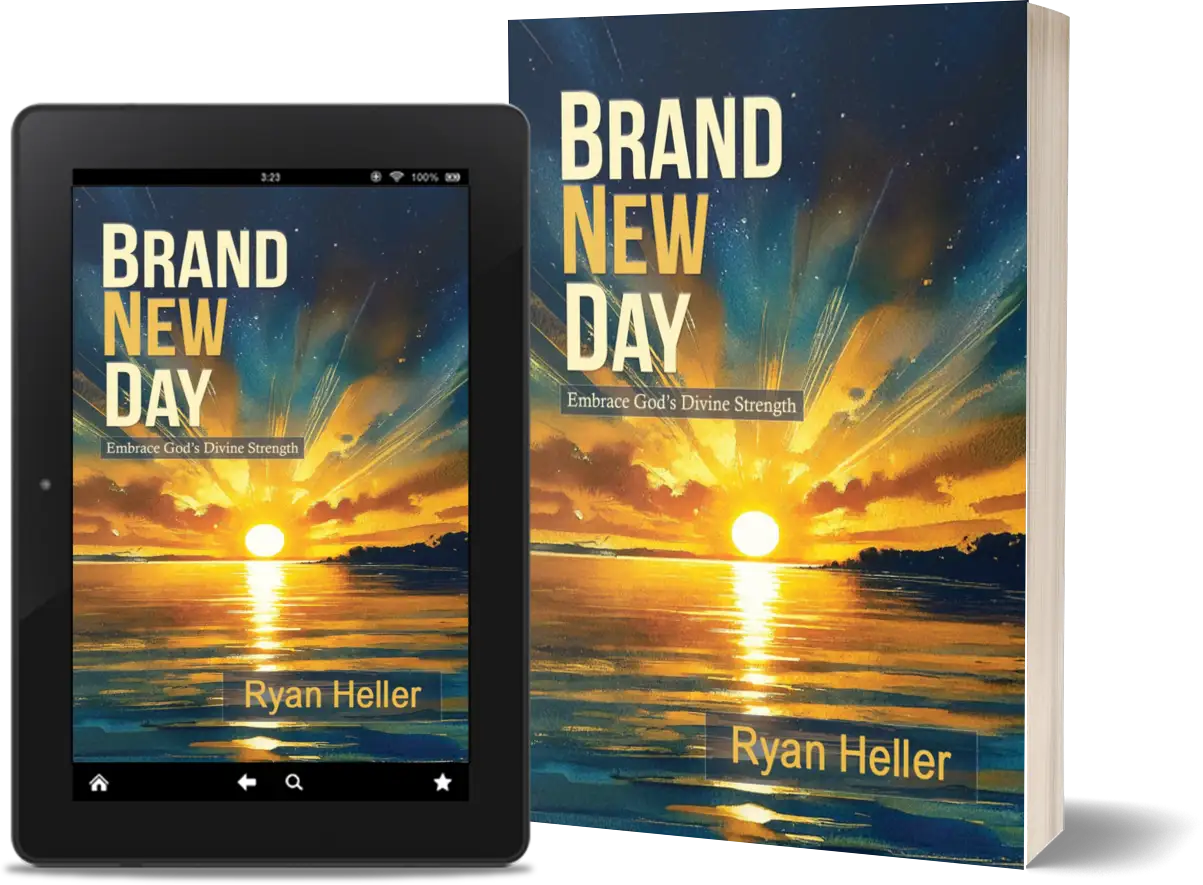At 80 years old, Moses was tending sheep in a desert, convinced his best days were behind him. Then God showed up with a burning bush and changed everything. If you think it’s too late for your comeback story, think again.
We live in a culture obsessed with early success. Social media feeds us a steady diet of 25-year-old millionaires, teenage entrepreneurs, and twenty-something influencers who seem to have figured out life before most of us even knew what we wanted for breakfast. It’s enough to make anyone over 30 feel like they’ve missed their window.
But what if everything you’ve been told about timing is wrong? What if your greatest chapter hasn’t been written yet?
The Myth of the Expiration Date
There’s this pervasive lie floating around that success has an expiration date. That if you haven’t “made it” by a certain age, you might as well settle for mediocrity. Hollywood perpetuates it. Silicon Valley worships it. Even some churches accidentally preach it when they focus solely on youth ministry while neglecting the wisdom and potential of their older members.
Moses obliterates this myth completely.
Here was a man who spent his first 40 years as Egyptian royalty, learning leadership and strategy in Pharaoh’s court. Then he made a catastrophic mistake that forced him to flee for his life, spending the next 40 years as a humble shepherd in the middle of nowhere. By age 80, most people would consider him a has-been, a cautionary tale of squandered potential.
Instead, God was just getting started.
The story of Moses teaches us something revolutionary about second chances, fresh starts, and the divine timing that governs our lives. It reveals that what we perceive as our ending might actually be our beginning.
When Setbacks Become Setups
Every person reading this has experienced some version of a setback. Maybe it was a career derailment, a relationship that imploded, a business that failed, or a dream that seemed to die. Perhaps you’re facing one right now. The natural human response is to view these moments as evidence that we’re not cut out for greatness, that we should lower our expectations and accept a smaller life.
Moses’ story suggests something entirely different.
His 40 years in the wilderness weren’t wasted time. They were preparation. The palace taught him leadership; the desert taught him dependence on God. The privilege of his youth gave him confidence; the hardship of his middle age gave him humility. Every experience, even the painful ones, was shaping him for a purpose he couldn’t yet see.
This perspective transforms everything. Suddenly, your divorce isn’t just a failure; it’s teaching you about resilience and self-reliance. Your career setback isn’t just a disappointment; it’s redirecting you toward something more aligned with your true calling. Your health crisis isn’t just a trial; it’s revealing strength you never knew you possessed.
The Power of Divine Interruption
Moses had settled into a routine. He had a wife, children, and a simple life that probably felt comfortable after the chaos of his earlier years. He wasn’t looking for adventure or dreaming of changing the world. He was just trying to get through each day, tending sheep and staying out of trouble.
Then came the burning bush.
God has a habit of interrupting our carefully constructed comfort zones. Sometimes it’s through a conversation that won’t leave you alone. Sometimes it’s through a book that challenges everything you thought you knew. Sometimes it’s through a crisis that forces you to reevaluate your priorities.
The interruption rarely feels convenient. Moses certainly didn’t think so. He offered excuse after excuse for why he wasn’t the right person for God’s mission. He was too old, not eloquent enough, lacked credibility. Sound familiar?
We excel at talking ourselves out of our own destiny. We have PhD-level expertise in self-disqualification. But here’s what Moses discovered that changed everything: God’s calling isn’t based on our qualifications. It’s based on His power working through our availability.
The Comeback Framework
What enabled Moses to move from forgotten shepherd to legendary liberator? The answer provides a framework that anyone can apply to their own comeback story.
First, he had to confront his limitations honestly. Moses didn’t pretend to be someone he wasn’t. He acknowledged his weaknesses, his fears, and his inadequacies. This wasn’t self-deprecation; it was self-awareness. You can’t move forward until you accept where you actually are.
Second, he had to trust in something bigger than himself. Moses couldn’t deliver an entire nation from slavery through charisma or clever strategy alone. He needed divine intervention. The same is true for any significant life change. Willpower and positive thinking will only take you so far. Real transformation requires tapping into a power source beyond your own strength.
Third, he had to take action despite his fear. Moses was terrified. The text makes this abundantly clear. But he moved forward anyway. Courage isn’t the absence of fear; it’s action in the presence of fear. Every comeback story involves this moment where you step forward despite not feeling ready.
Fourth, he had to persist through opposition. Nothing worthwhile comes easily. Moses faced resistance from Pharaoh, complaints from the Israelites, and even moments of doubt from God Himself. Your comeback will involve setbacks, criticism, and moments when you question whether you’re on the right path. Persistence separates those who succeed from those who quit.
The Modern Application
You might be thinking, “That’s a nice Bible story, but what does it have to do with my 21st-century problems?” Everything.
The principles that governed Moses’ transformation are timeless. Whether you’re dealing with career stagnation, relationship struggles, financial pressure, or just a general sense that you’re capable of more than you’re currently experiencing, the same framework applies.
Consider Sarah, a 52-year-old accountant who felt trapped in a career that no longer fulfilled her. After her divorce, she found herself questioning everything about her life. Instead of accepting that her best years were behind her, she decided to pursue her lifelong dream of becoming a counselor. Three years later, she’s running her own practice and helping other women navigate major life transitions.
Or think about Marcus, who lost his construction business during a major economic downturn. At 45, he felt like a failure, watching younger competitors dominate the market with technology he didn’t understand. Instead of giving up, he spent two years learning digital marketing and project management software. Today, his rebuilt company is more successful than the original ever was.
These aren’t extraordinary people with unique advantages. They’re ordinary individuals who applied extraordinary principles to their circumstances.
Breaking Free from the Scripts
Society loves to write scripts for our lives. Graduate college by 22. Get married by 30. Have kids by 35. Achieve career success by 40. Retire by 65. Die quietly without causing any trouble.
But some of the most remarkable stories in human history were written by people who threw out the script entirely. Moses didn’t become a leader until he was 80. Laura Ingalls Wilder didn’t publish her first Little House book until she was 65. Colonel Sanders was 62 when he franchised KFC. Grandma Moses didn’t start painting until she was 78.
Your timeline is not their timeline. Your path is not their path. Your potential doesn’t expire on someone else’s schedule.
The Burning Bush Moment
Here’s what I’ve learned from studying Moses’ story and countless real-life examples: everyone gets burning bush moments. The question isn’t whether they’ll come; it’s whether we’ll recognize them when they do.
Your burning bush might be a conversation with a stranger that plants an idea you can’t shake. It might be a book that challenges everything you believed about what’s possible. It might be a crisis that forces you to reevaluate your entire approach to life.
The key is staying alert to these moments and having the courage to investigate when something unusual captures your attention. Moses could have dismissed the burning bush as a hallucination or a natural phenomenon. Instead, he turned aside to look. That decision to investigate changed the course of history.
Beyond Personal Transformation
Moses’ story isn’t just about individual comeback; it’s about the ripple effect of one person’s transformation. When Moses finally embraced his calling, it didn’t just change his life. It liberated an entire nation, established a moral framework that still influences civilization today, and provided hope for countless generations of people facing impossible circumstances.
Your comeback story isn’t just about you either. The obstacles you overcome, the skills you develop, the wisdom you gain through struggle—all of that becomes a resource for helping others navigate similar challenges. Your victory gives others permission to believe in their own potential for transformation.
The Path Forward
If you’re feeling beaten down by life right now, if you’re convinced your best days are behind you, if you’re struggling to believe that real change is possible, Moses’ story offers a different narrative. It suggests that what looks like an ending might actually be a beginning. That what feels like disqualification might actually be preparation. That what seems like impossible timing might actually be perfect timing.
The question isn’t whether you’re qualified for a fresh start. Moses wasn’t qualified either. The question is whether you’re willing to trust that there’s more to your story than what you can currently see.
Your brand new day isn’t dependent on your age, your background, your education, or your track record. It’s dependent on your willingness to believe that the same God who called an 80-year-old shepherd to become a legendary leader might have something equally extraordinary in mind for you.
The burning bush is waiting. The only question is whether you’ll turn aside to look.


